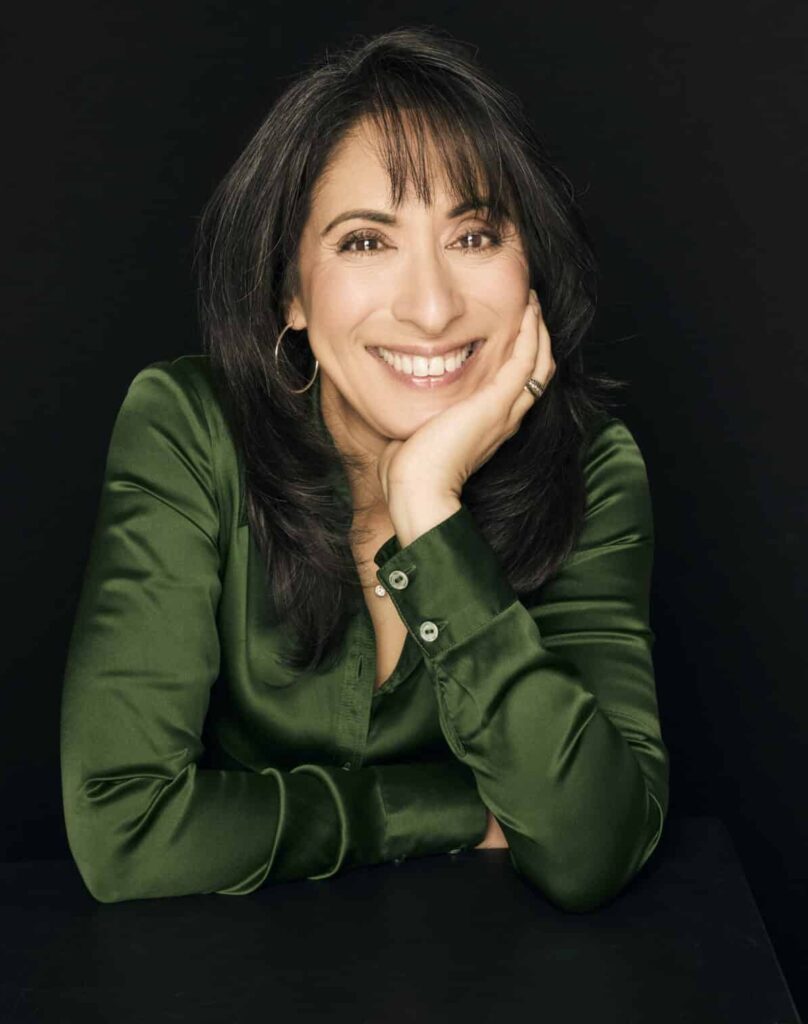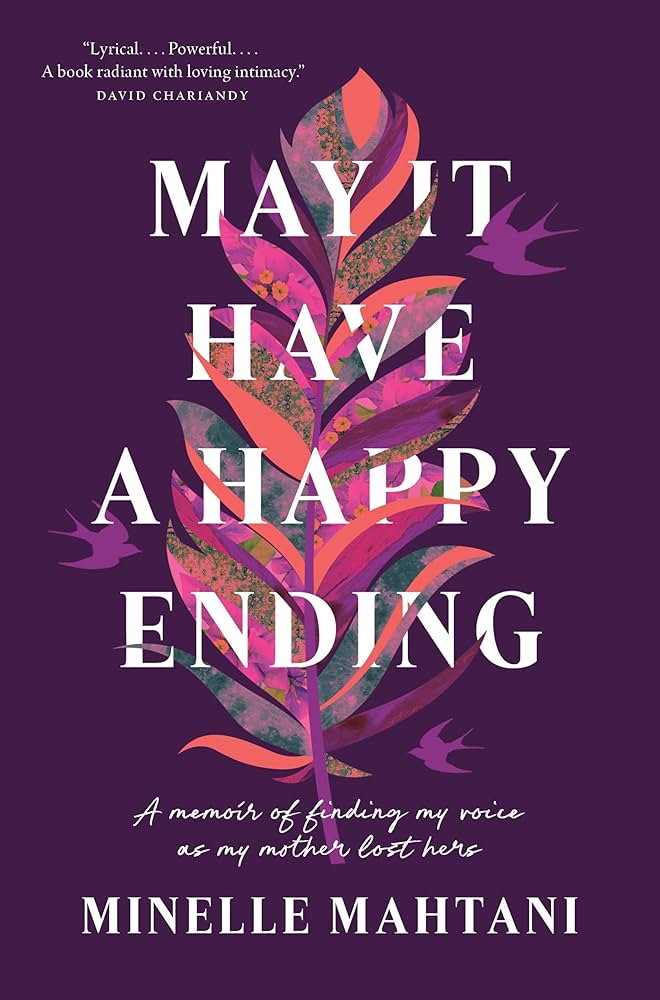We’ve left it open for you, so you don’t even need one of those little keys. Because writing is life, and keeping it real means forgoing the line between the personal and the professional.
Clients Crushin’ It: Minelle Mahtani
Madison Utley speaks to debut author Minelle Mahtani following the publication of her memoir, May It Have A Happy Ending, by Penguin Random House Canada. The two discuss how Minelle gave herself permission to think creatively, what that enabled for her writing, and what she recommends for staving off the post-big-writing-project blues.


Q: When did creative writing become part of your journey, and how does that coexist with your academic self?
A: I’ve always been interested in writing, but I didn’t know if I could give myself permission to think creatively. There was a lot of pressure on me to become a doctor or a lawyer–the trope of the immigrant kid. I started writing when I was 11 or 12, just scratching things out in my journal, but I didn’t really mature into that until after my mom died. That’s when I started thinking about the possibilities of the creative voice. I also ran a radio show for a time that was mostly me interviewing authors about their books. That helped me think more critically about the potential and the promise of using one’s voice. The discipline of having to write a script every day also gave me the opportunity to refine and finesse my writing. All of those things worked together to give me the permission to write a book eventually.
Q: Did you expect that permission to express yourself creatively to culminate in your memoir? Or were you open as to what that bigger project might be?
A: Just after my mom died I got asked by my alma mater, Dalhousie, to come and talk to first year students. When I started preparing for that, it became a talk about all the ways I had experienced failure in my life. That piece seemed to really resonate with people. We don’t talk about failure; it’s often kept private. So I was really curious about the opportunities that come from speaking about vulnerability and failure and loss and grief–things that are taboo subjects. That paper morphed into the memoir. Don’t get me wrong; the memoir took me four years to write. But the genesis was that speech, and giving myself permission to speak publicly about failure. I was also lucky to have many writing angels along the way who offered a lot of support.
Q: Talk to me about the process of editing your manuscript. As far as I understand, you worked with both Stuart and the editor provided through your publishing house on the book?
A: And a few other people too, yes. I applied to almost every single writing program I could get my hands on, in terms of workshops and retreats. I also did so much reading about how to write books that proved really helpful. Bringing Stuart into the process was complete serendipity. I spent a lot of time thinking about the scaffolding of my memoir. When I typed “book architecture” into Google, up came Stuart’s name. My relationship with him was really useful; he taught me a lot about arc and making sure there was propulsion in the story, which is often very difficult when it comes to grief because grief is nonlinear. Also, Stuart is extraordinarily honest in ways that we don’t often get the opportunity to receive. That’s one of his great gifts, and it was very helpful.
Q: Did you feel a definite sense of having reached completion with the manuscript, or was that a hard call to make?
A: I only knew it was done when my editor told me it was done. I could have worked on it for another year. Sometimes I wish I had–but not really. I knew it was time to let it go. Making that decision takes a certain kind of maturity, and calls for trusting that you’re going to write more after that. You know this is not going to be the end all, be all of your existence. In order to let something more beautiful come into the world, you have to make way. That’s what I meditated on. Plus, I’m already working on my next project. That was the best advice I got. The minute you hand in your manuscript, start working on your next book.
Q: Did you already have a clear sense of what you wanted your next project to be? Or did you simply launch yourself into the exploration of the possibilities?
A: Yes, I knew what I wanted to do when I finished my memoir. Who knows? Maybe it’ll come to nothing. I’m just going to have fun with it. I really do think you need to launch yourself into your next project as soon as you wrap up your last one. Nobody tells you about the silence between when you submit and the book launch. You just don’t know how your book is going to be received.
Q: What advice do you have for other writers?
A: I think the thing I wish I had done more is trust my intuition and my instincts. So I’d say: pay attention to what you pay attention to. I think that’s really important. And then that’s what you have to write about.

Leave a Reply